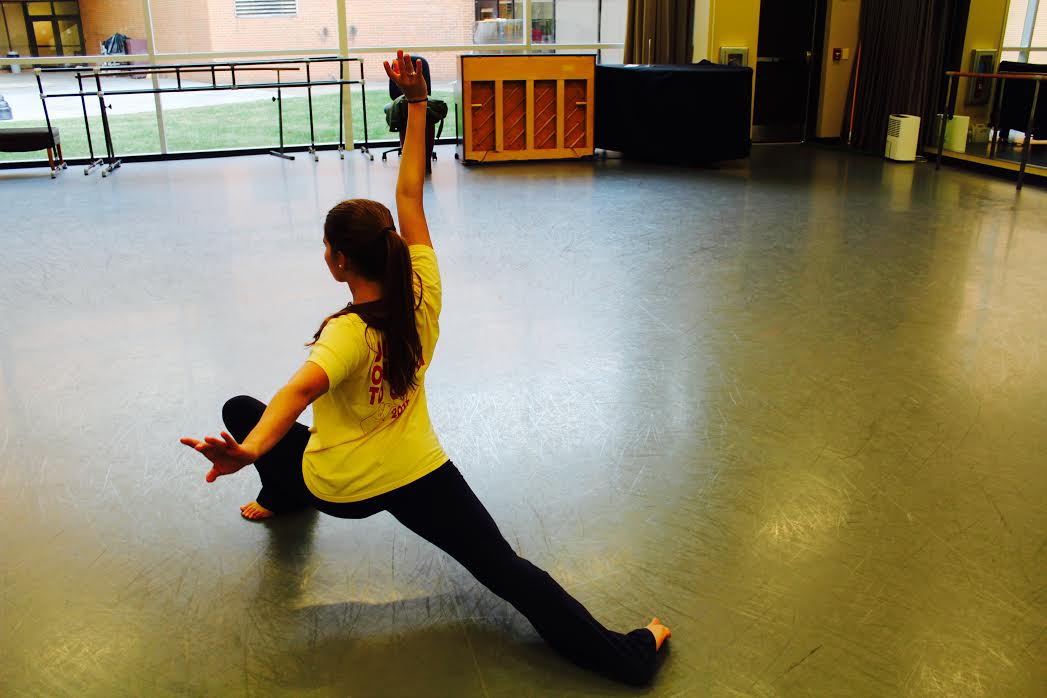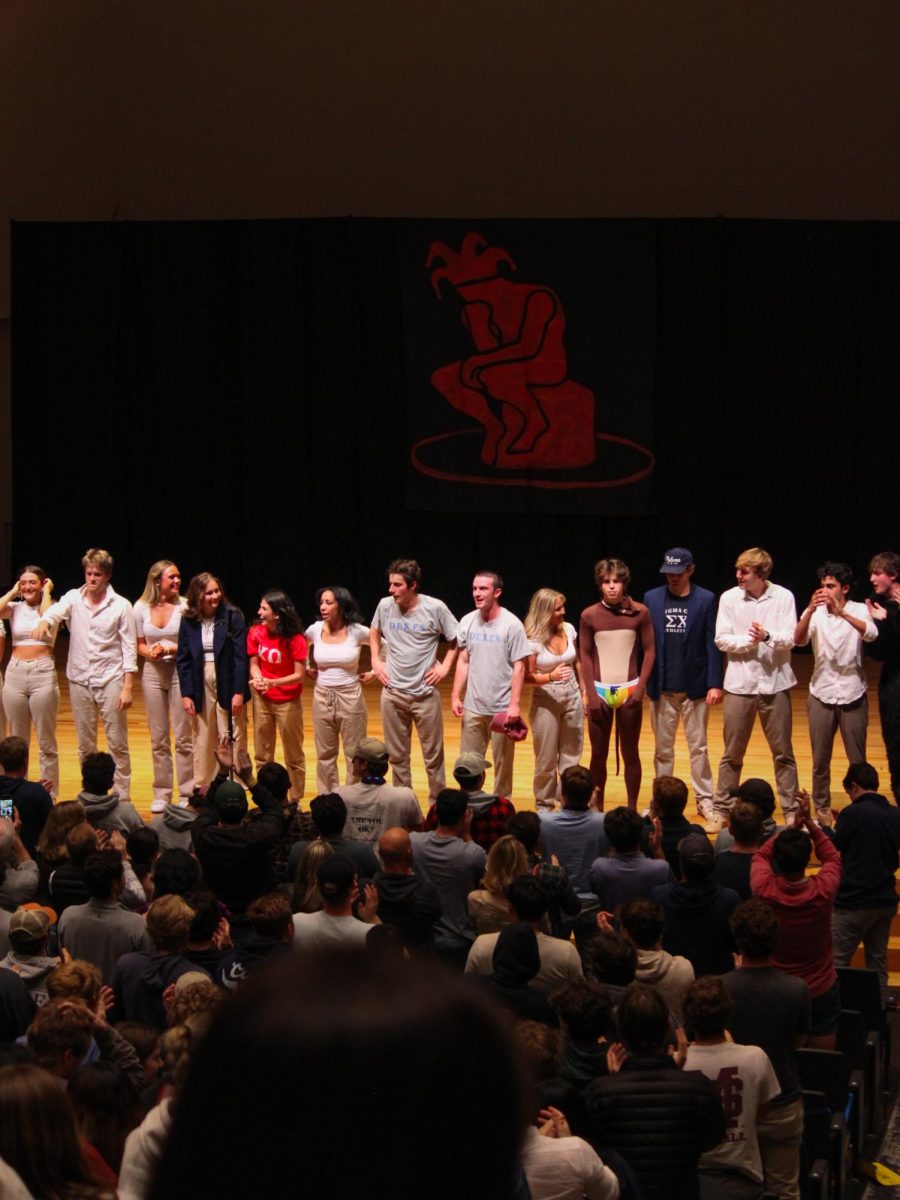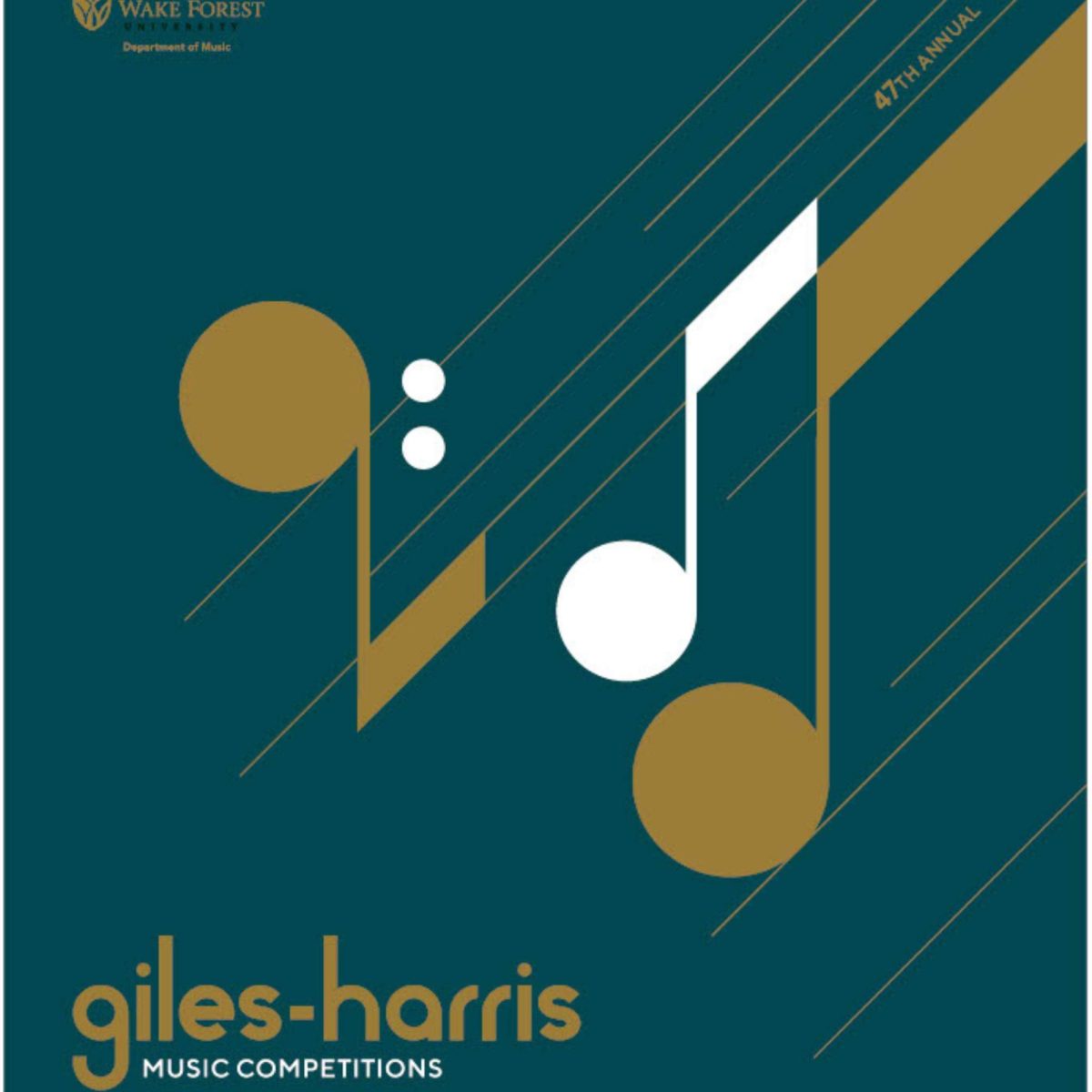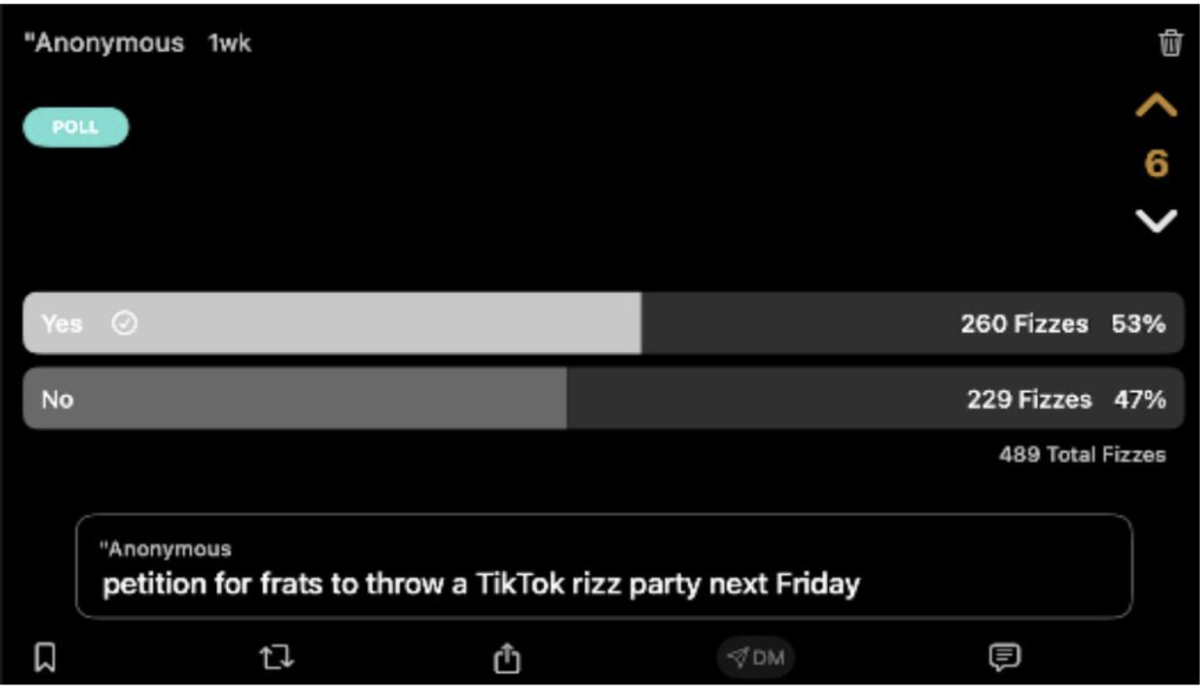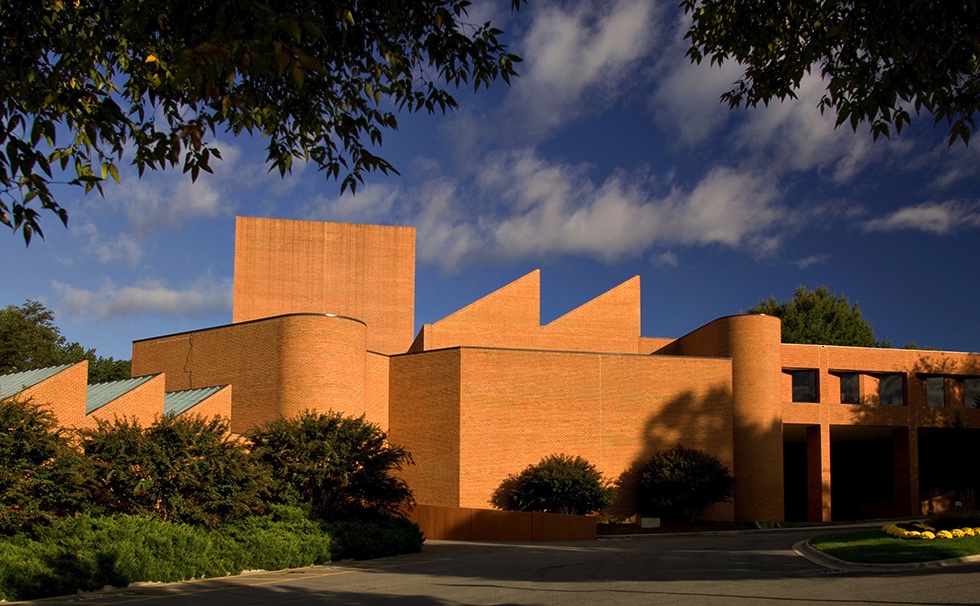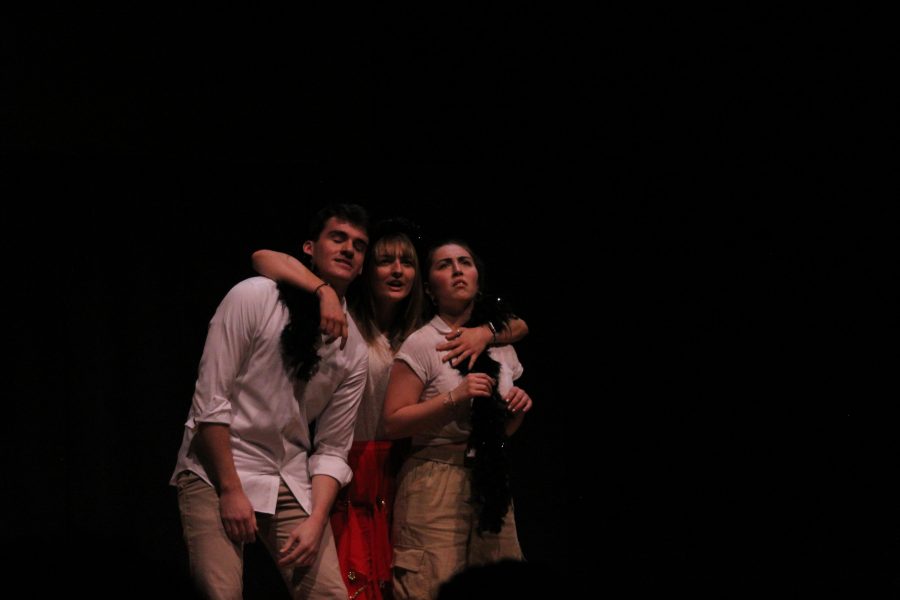The stage lights beamed and all eyes fell on the ballerina taking the stage. Several months of rigid rehearsals and minor injuries culminated in the following three minutes.
It was her chance to prove she was capable of training among the most talented ballerinas in the country.
With this in mind, she took a deep breath and began her routine.
Gabi Navarro was just 14 years old when an instructor from the Bolshoi Ballet scouted her at the Youth American Grand Prix in Philadelphia. She was just 14 years old when she was confronted with the once in a lifetime opportunity to train at the American Ballet Theater. At 14 years old she made the decision to refuse the offer and pursue a college education.
“I was so young,” says Navarro, a senior Presidential Scholar at Wake Forest. “I had to start thinking about what I wanted to do. I loved school and got excited about things happening outside of dance. I wanted to do it all.”
Dancers of all styles are faced with the decision to forgo an immediate college education to pursue dance intensive programs at world-renowned companies, like Bolshoi, Hamburg, The Royal Ballet School and others. Many dancers, however, opt for the collegiate experience found at Wake Forest, instead. Students interested in dance here are provided with rigorous instruction and performance opportunities while being offered a liberal arts education and well-rounded college experience.
“The nature of a Wake Forest student is to have two majors and six minors,” says Nina Lucas, the director of dance. “It’s a great place for students who have danced and want to continue dancing, but also want to pursue other things.”
Major in the Making
The department of theater and dance offers a dance minor to students of all levels of experience. With a minimum requirement of 19 hours and additional rehearsal time outside of the classroom, the dance minor is intensive and time demanding.
Students take courses ranging from beginning classical ballet, modern and jazz to advanced technique classes.
The heavy course load brings a dance major into question. With the amount of time dancers dedicate to classes, rehearsals and performances, the department is discussing the addition of a major.
“Would it make sense? Absolutely,” says Christopher Martin, an assistant teaching professor for ballet. “Would the campus benefit? It’s something we’re discussing. I don’t think anyone really immerses themselves unless they are a major, but students have to take care of [non-dance related courses], too.”
The addition of a dance major would provide students with a broader scope of information discussed. Students would have the opportunity to pick a focus like kinesiology, performance or dance education to study.
“The beauty of Wake Forest’s dance program is that we offer quality programs of all types,” Lucas says. “We have a nice, tight curriculum that could easily be a major. I don’t know how many dancers would choose to major, but we wouldn’t exclude anyone. That’s the beauty of the liberal arts education.”
The decision to develop a major depends heavily on funding from the school. Therefore, the department is forced into a standstill on the issue until they receive the necessary funds to move forward. A major would require more space for the dancers, prompting a full renovation of Scales. Funding would also be used to hire new professors and organize more student workshops with local performers.
“As of right now, I feel like the Wake Forest department of theater and dance is severely under funded and under appreciated,” Pappas says. “I think administration needs to take a look at the students in The dance department and their level of talent. If Wake funded The dance department properly and gave as many resources as it gives, say the business school, we could pull even more talented students, both prospective and current, to continue their passion or explore their newfound passion for dance.”
Dancing Around Campus
The department of theater and dance extends opportunities beyond the classroom. Through student-lead, performance-based organizations, students interested in performing arts are able to continue developing their skills and mastering their craft. The Dance Company, Momentum Crew, Lost in Translation, Salsa Dancing Club and Setting the Groove are a few outlets for student dancers, whether they are declared minors or not.
“I don’t press the dancers in [The Dance Company] to minor,” Lucas says. “It’s their life. My goal when I first came was to build the program, keep providing quality classes and make those classes accessible and inclusive. We not only want our elite dancers, but also students that are interested in learning about the art form.”
Many dancers on campus value the department of theater and dance as a stress reliever when their rivaling coursework becomes too much to bear. Professors welcome dancers of all backgrounds and levels to express themselves in one of Scales’ studios.
Preparing for the Future
As the imminent graduation day quickly approaches, Navarro prepares for her future. Navigating through internships, jobs, applications and interviews, she remains thankful for her decision to forgo professional ballet training and pursue dance at the collegiate level.
“It’s one of the first things I get asked in an interview,” Navarro says. “[Ballet] has taught me how to schedule my time. It’s taught me determination.”
Many Wake Forest students use on campus resources to help find jobs and internships in their desired field. Although the OPCD offers a career trek for performing and visual arts, resources beyond this are limited. The job search presents a different challenge for performing arts students because the career field is heavily based on talent and experience rather than credentials.
“Plenty of dancers end up becoming orthopedic surgeons or lawyers or even loving parents,” Martin says. “What’s unique about a dancer is that at a very early age they are held to the standards of a professional environment with rigor and consistency. We know what it means to show up every day and work.”
The OPCD is able to track first destination careers of Wake Forest alums within six months of their graduation date. Because this information is based on their majors, dance minors are not accounted for. Based on statistics available, a few students have pursued MFA programs and teaching careers, but the majority of dance minors are not recorded as having performing arts-related careers.
“I’m not thinking of becoming a dancer after college,” Navarro says. “But I still do it because I love it. I’ve never had a feeling like I have when I’m on stage. There are times when I ask myself if I want to continue, but then I nail a dance on stage that I’ve been working on for months and remember why I love it so much.”

